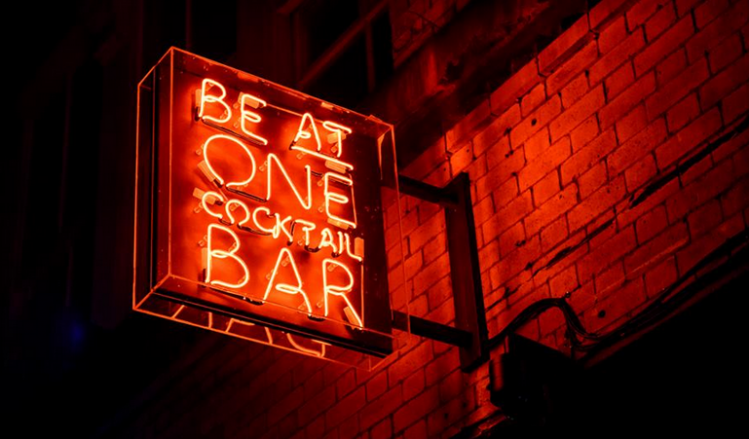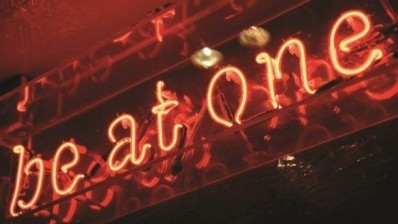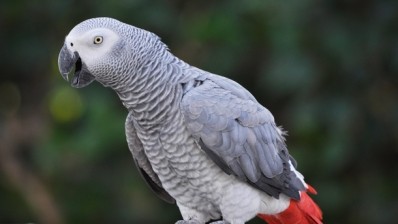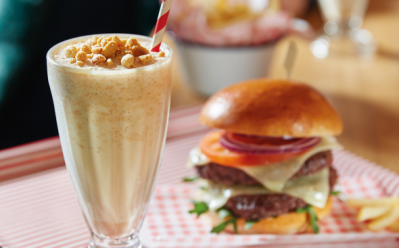Cocktails
Be At One founders: ‘Learn from our mistakes’

Like all 18-year-olds, Be At One went through different phases growing up, but the lessons learned over the years have made it the successful company it is today.
And would many customers (or even other operators) know how much the business was inspired by the founders’ experiences at TGI Fridays? Possibly.
The three men who gave Be At One life recently gathered at their Greek Street venue in Soho to celebrate the chain’s 18th birthday, with drinks supplied by long-time liquor partner Pernod Ricard.
Steve Locke, Leigh Miller and Rhys Oldfield (and Paul Mason – who left after four years), founded Be At One in 1998 after leaving TGI Fridays, where they all met and became friends through an internal competition. Their business ethos was inspired by Fridays, which was the place to train as a bartender in the 1990s.
Be At One's first bar in Battersea, south London, cost £60,000, which was raised after each founder took out car loans, because the bank wouldn’t offer any of them a business loan.
The Northcote Road site made £50,000 in profit in its first year and is now making more than £400,000 a year.
Getting there, though, was often a struggle for the founders. “The site was originally a vegetarian, Indian Muslim restaurant,” explains Oldfield.
“Once we got the keys, we realised that it didn’t have a licence (to sell alcohol). The owner had let it lapse because he didn’t need to sell alcohol. I think there were a few sleepless nights, but it was sorted fairly quickly.”
For Locke, not having a liquor licence wasn’t an issue. He, and he speaks on behalf of his fellow founders too, was willing to crack on by working towards creating the business they set out to build.
“A lot of the reason why we have got where we have is literally by bumping along,” he explains. “There’s a lot that could have gone wrong, but we all started with nothing and so we were going to carry on until someone came along and took it away from us."
‘The worst thing we could have done’
Locke added: “The worst thing that we could have done was not give it ago, because they amount of times you try something and succeed compared with failing is amazing – you’ll probably succeed more than fail.”
So, the Battersea site went off with a bang, and then the trio got a little cocky in search of their second site.
It was always the plan to have more than one site, they all agree – they didn’t think it would be 30 sites, though. Being so close to each other, the founders knew they would not be able to run one bar between them.
Their second bar, in Wandsworth, south London, was three times the size of the Battersea site, with rent five times as much, says Miller.
Be At One lost £182,000 in the two years it took the founders to sell the site. But what was the problem?
Locke explains: “We diversified into food and had a restaurant with waiters and waitresses. We opened all day.
“Then the chef left and the food was going off and the margins were slipping – we had done something that we didn’t know much about.”
The Wandsworth site was more reflective of TGI Fridays than their Battersea site. It focused on food, rather than drinks, which was why the trio left TGI Fridays in the first place.
Neither Locke, Miller or Oldfield would go back in time and change what they did, because they learnt a valuable lesson.
“We managed to find another site in Richmond and focused on why Battersea worked and why Wandsworth didn’t,” says Locke.
Experience counts
Miller adds: “Stick to what you know, that’s the lesson. We were cocktail bartenders and maybe if one of us was a chef then something else might have happened.
“I remember being in the kitchen in Wandsworth and feeling really sick. But you’ve got to try things before you know they’re wrong.”
The challenge now, explains Locke, is there’s so much competition out there and because food isn’t served, Be At One has to excel at what it does best.
“We specialise in cocktails 100%,” he says. “Property is also an issue. We’re still trying to add sites in London, we’re in 20 [London] sites at the moment.”
Maintaining the elements of the brand that were set out in its creation is one of the most important things for Miller and Oldfield in the future.
You can make subtle changes and refresh the look of the business and change menus, but the foundations of the business must remain throughout its development.
Focusing on cocktails also means there’s a negative attitude towards the impact beer would have on the business.
“Nothing would kill our business like draught beer,” claims Oldfield. “We sell bottles of beer and we sell nice wines, but we want people to come in here and drink cocktails.
“There may be customers who are a little wary of cocktails, but the way we open the menus to them – on the centrefold where we have our best cocktails and pictures of them – makes it less intimidating for them.
“Maybe while someone is having a beer or a wine, then the bartender can talk to them about what they like and sell them a cocktail.”
Many businesses have hiccups, but Be At One has ridden through theirs to the age of 18 and the trio that founded the chain is very optimistic for the future.







